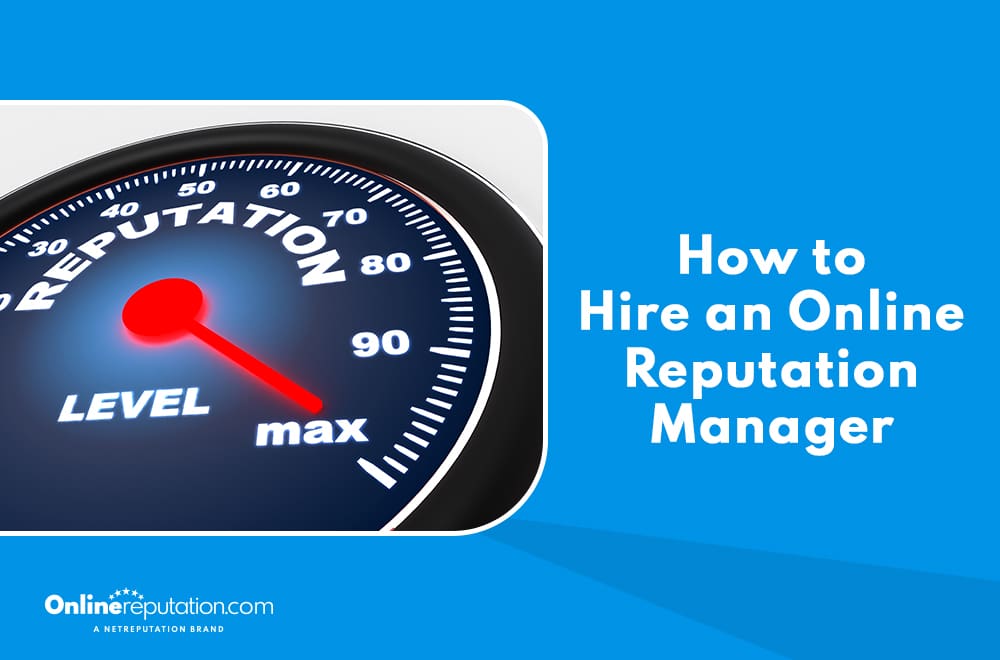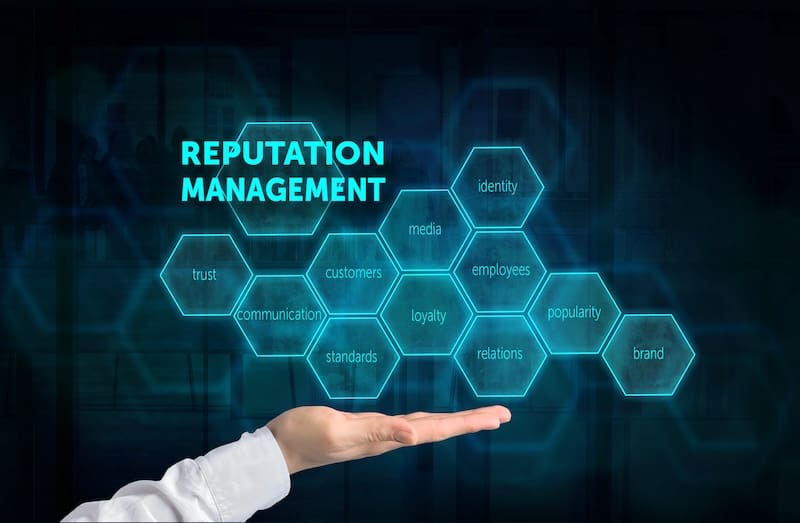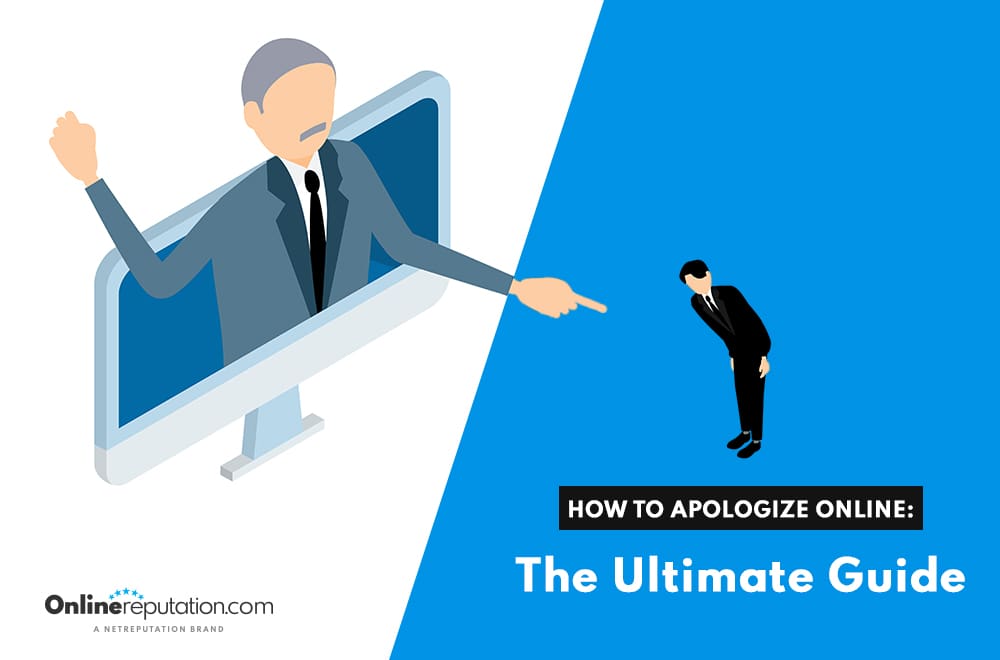
Is it time for your company to hire an online reputation manager? In this article, we’ll go over what you should know about hiring an employee or contractor to handle online reputation management and help your brand achieve success.
One of the hardest parts of owning a small business is giving control of tasks to new employees as you grow. However, there comes a time when you just can’t do everything yourself, and hiring experts in specific fields makes a lot of sense.
If your business has a large online presence, hiring an online reputation management expert or working with an external reputation management consultant may be a good move for your company.
Online reputation management (ORM) is a relatively new field, so finding someone with experience in this specific role can prove difficult. In this article, we’ll go over what you need to know about working with ORM professionals so you can improve your brand’s reputation online.
We work with clients to help them build their online reputation and take control of their digital presence. Give us a call at 844-230-3803 to learn more.
Consider Past Experience

Whether or not they have the exact title of “reputation manager,” look for candidates who have experience in the following roles or job duties:
- Brand management
- Community management
- Customer service
- Online reviews
- Public relations
- Search engine optimization
- Social media marketing
Even roles in project management and digital marketing can help someone develop the skills they need to be great at ORM. The strongest candidates for this role will have experience doing at least some of the following tasks:
- Compiling data to understand brand sentiment
- Crafting customer-facing messaging
- Creating or following branding guidelines
- Deleting or suppressing negative Google search results
- Handling customer service complaints via phone and email
- Monitoring social media and blogs for brand mentions
- Responding to both positive reviews and negative reviews
- Serving as a liaison between customer service and marketing teams
- Using social media channels to speak with current and potential customers
- Working with reputation management software to streamline processes
Great candidates often also have experience with blogging, writing press releases, working with product development teams to improve quality based on customer feedback, providing tech support, and analyzing data. Additionally, they should have knowledge and understanding of the most important online reputation management services and the best reputation management software for review management, social media management, etc.
At its heart, brand reputation managers and corporate reputation management companies need to provide great customer service, and these are skills people often learn during retail jobs in high school and college. In other words, don’t overlook these types of entry-level jobs on resumes! In general, look for candidates with a history of providing great customer service.
How Much Do Reputation Management Services Cost?
One of the main questions when hiring a reputation manager is, “How much will it cost?” The price for managing, improving and protecting your business’s reputation will be based on a variety of factors, including:
- B2B vs. B2C: Is your target market made up of other businesses or consumers (business-to-business vs. business-to-consumer)?
- Company Size: Do you run a small business or a large company? How many products/services and locations do you have? Where are your offices located — in the same general area or spread out around the globe?
- Coverage: Do you need full-time ORM or part-time services?
- Existing Online Reputation: Does your brand currently have a positive reputation, or is customer sentiment low and in need of repair? Are you rebounding from a PR crisis that caused serious damage to your brand online?
- Online Activity: Does your brand and/or industry have a lot of online activity, such as online reviews, social platforms and other types of digital channels?
Additionally, consider if you want to work with the reputation expert virtually or if they need to be in the office full- or part-time. Also, are you willing to train the person you hire and have them grow with time, or do you want to find a reputation manager with tons of experience who’s ready to take on the entire role immediately?
Once you have a good idea of what you’re looking for in a brand reputation manager — coverage, in-office vs. off-site, required services, etc. — you can start contacting companies and asking for free quotes.
Check out our guide to the costs of ORM services to evaluate the kinds of services you may want based on your business needs and budget.
Do You Need Someone In-House?
Depending on your online reputation management needs, you may or may not need someone in-house for this role. Instead of hiring an individual to take on these tasks, you might be better served by working with an online reputation management company.
Advantages of Working With an ORM Team Virtually
- In most cases, it will be less expensive, especially if you don’t have a heavy need for reputation management yet.
- You’ll have more options and can find experts with years of experience in this field.
- Longstanding ORM companies have premium reputation management software at their disposal to help you track your brand activity online.
Disadvantages of Working With an ORM Team Virtually
- You’ll be one of many clients, in most cases, so their full attention will not be on your brand.
- You may have to hire a company without meeting the specific people who will be assigned to your account, so it’s harder to ensure that they will be a good fit for you.
- You’re dependent on details like internet service and other people’s schedules in order to connect, which wouldn’t happen if you had an in-house manager or ORM team.
Consider Hiring an Online Reputation Consultant
A third option is to hire an online reputation consultant. This person can teach online reputation management skills to someone currently working for you in customer service, marketing, or even sales.
You can also pay a retainer to have this consultant on call whenever you have a reputation-related question or need extra help. Working with a consultant is a great option if you’re on a budget or don’t have a strong need for reputation management yet.
Remember, online reputation management is no trivial matter, so hiring the right online reputation manager is crucial to a business’s success.
Along with our parent company NetReputation, OnlineReputation.com provides information and services to help you protect your digital presence. Get started with a free online reputation analysis here.
You might also like
How To Apologize Online: The Ultimate Guide for 2025
Is it time for your company to hire an online reputation manager? In this article, we’ll go over what you …




